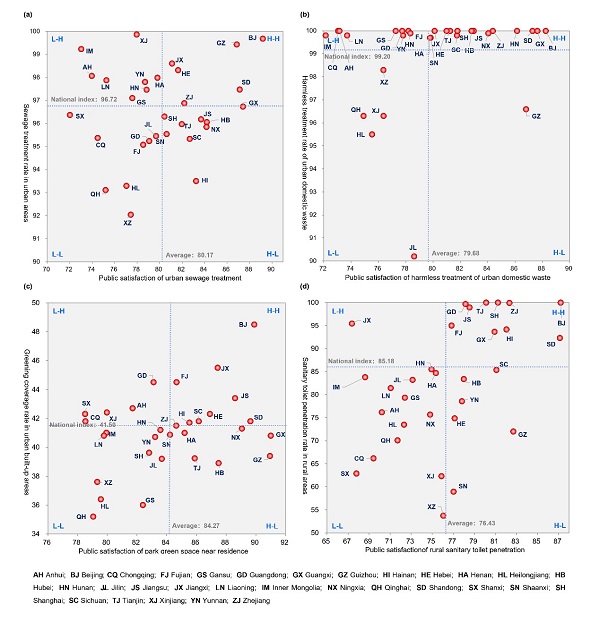Researchers Evaluate Urban-rural Human Settlements in China from Objective and Subjective Perspectives
The improvement of human settlements is an important goal of the United Nations 2030 Sustainable Development, which has also attracted wide attention from the Chinese government and scholars. However, previous studies on human settlements often separated urban and rural areas, and separated subjective evaluation from objective evaluation, which was not in line with the characteristics of close interaction between human and environment in human settlements.
Prof. FANG Chuanglin, Associate Prof. MA Haitao and the team members at the Institute of Geographic Sciences and Natural Resources Research of Chinese Academy of Sciences quantified the spatiotemporal patterns of human settlements in China during a long period from both urban and rural dimensions. They further studied the correlation between objective evaluation and subjective well-being regarding the comprehensive assessment of urban-rural human settlements. This work was published in Humanities and Social Sciences Communications with the support of the Science Fund for Creative Research Groups of the National Natural Science Foundation of China.
The team constructed a comprehensive index system to evaluate the quality of urban-rural human settlements in China from the objective perspective, a large spatiotemporal scale covering 31 provinces (autonomous regions and municipalities) from 2000 to 2019.
They collected more than 500 thousand questionnaires from the 31 provincial-level regions based on the point of subjective perspective in 2020, discussed the relationships between objective and subjective evaluations of urban-rural human settlements at national and subnational levels in China.
The study showed that the quality of urban-rural human settlements in China has significantly improved over the last 20 years objectively, and the national average score of subjective estimation of human settlement was at the level of “Satisfied” subjectively.
“The objective and subjective evaluations of urban-rural human settlements have a positive correlation, but there are evidently differences in objective estimation to different sub-dimensions, and the quality evaluation and public satisfaction of human settlements in some regions were uneven,” said Prof. FANG.
“Long-term follow-up investigation should be the focus of urban-rural human settlements evaluations. The results are helpful for adjusting measures to local conditions and promoting continuous improvement, providing a reference for policymakers to fully consider the needs of residents in the top-level design so that national policies can better benefit the people’s livelihood,” associated Prof. MA added.
 |
| Figure: Type of relationship between quality evaluation and public satisfaction of each indicator of human settlements. a–e Displayed the four indicators. (a) Urban sewage treatment. (b) Harmless treatment of urban domestic waste. (c) Urban greening coverage. (d) Rural sanitary toilet penetration. (Image by Prof. FANG Chuanglin’s group) |
Reference:
Fang, C.*, Ma, H.*, Bao, C. Wang, Z., Li, G., Sun, S., Fan, Y. Urban–rural human settlements in China: Objective evaluation and subjective well-being. Humanit Soc Sci Commun 9, 395 (2022).
